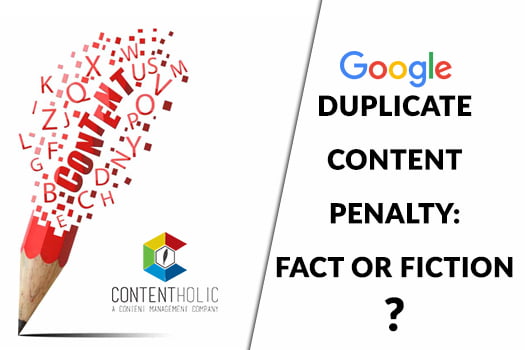The wave that duplicate content has created all these years is enormous, and websites are actually afraid of this phenomenon. People who have their own websites are more afraid of duplicate content than the spam links that flood web pages. While websites and people oppose it altogether, what really matters is as to how Google handles duplicate content. Is there any such thing as a duplicate content penalty? Let’s find out.
What is duplicate content?
As Google puts us through what really duplicate content means, it falls along the line of blocks of content that is scattered across domains, which are either exactly similar or match up to a certain extent. It is the content that is visible on more than one web page. So in simple words, duplicate content is a term that we use in the context of search engine optimization, with multiple pages containing the same content. Some of the common causes of duplicate content are HTTP and HTTPS, www and non-www, pagination, index pages, dev hosting environments, AMP pages, country versions and so on.
This duplicate content takes two forms:
- Malicious: It refers to the content that is duplicated intentionally in order to manipulate the search results, the other term for which is search spam. It is done to gain more traffic, by making the content available in duplicate formats across SERPs.
- Non-malicious: This type of duplicate refers to multiple variations of the same page, such as those optimized for HTML or mobile devices. A popular form of duplicated content is syndicated content. If there is syndication happening, it is imperative to ensure that the search engines are able to direct the user to the original page, so that the original page gets more traffic than the syndicated ones.
A lot of attention has been paid to duplicated content lately, and research shows that out of the total content available on the web, 25-30 percent of it is duplicated. This is what Google thinks about duplicate content:
- The major hardship that search engines face in the case of duplicate content is that they are unable to figure out as to which pages they should index in the Search results. Though Google doesn’t penalize duplicate content, it doesn’t uplift it either.
- Google knows that when the users surf for a certain topic, they want a diverse set of results, and hence it consolidates the search results to look for multiple versions of the same content and displays only one version.
- Google designed algorithms in order to prevent duplicate content to manipulate the search results. These algorithms would group multiple versions of content into a cluster, and the best URL in that entire cluster of versions would be displayed. The algorithms would combine various signals from the pages to the one being displayed.
- Also, duplicate content is not harmful, unless it of a malicious nature. It shouldn’t be posted to manipulate the search results. Google is more intelligent than the people who post duplicate content for malicious reasons. At the time of displaying the most desirable pages on the internet, the search engine digs to the origin to each link in order to know the source of the content and displays the content that is authentic.
- It is important to display authentic content that is actually of use of the audiences. If you want yours to do the most good, you can go professional through the best Content writing services and create content that is original and easily crawls its way up to the search result pages. If you feel that someone is duplicating your content without your consent, then you can report that site under the digital millennium copyright act.
Conclusion
There are solutions to duplicate content, Google being one of them. Even if you are unable to consolidate the signals by yourself, you need not worry as Google will do that for you. canonical tags, 301 redirects, Rel=”alternate” are some of the solutions to solve this problem of duplicity. If you wish to create unique content and make it free of any kind of plagiarism, you can hire the best content writer for the same.






